Table of Contents
The recent 12-day war between Israel and Iran has dramatically reshaped the geopolitical landscape of the Middle East and stirred deep concerns about global security. What began as a military exchange between two regional powers quickly escalated into a full-blown conflict, drawing in external actors, including the United States, and setting the stage for a complex web of diplomatic negotiations. As the fighting came to a halt with a fragile ceasefire brokered by US President Donald Trump, both sides emerged exhausted, but the questions surrounding the future of Iran’s nuclear program, the fate of Gaza, and regional stability persist. This post delves deep into the aftermath of the war, analyzing the immediate consequences and what lies ahead for Iran, Israel, and the broader Middle East.
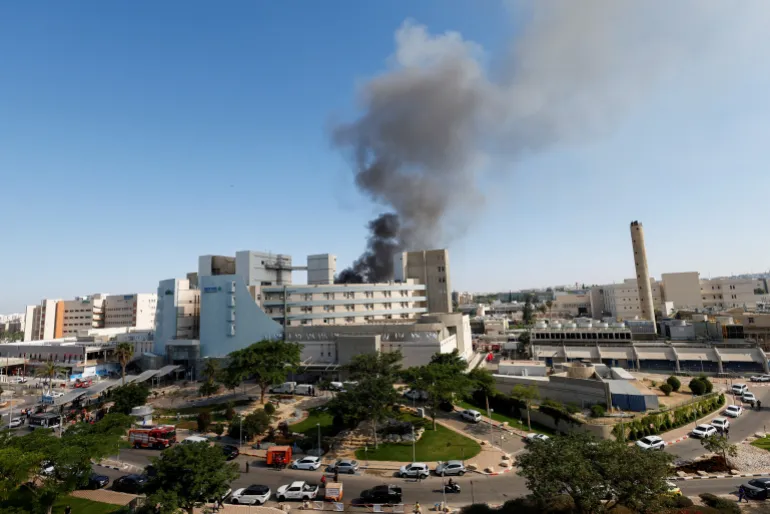
The Ceasefire: A Tactical Respite or a Prelude to Further Conflict?
On June 25, 2025, US President Donald Trump declared that the conflict between Iran and Israel was over, announcing that both nations had agreed to a ceasefire after 12 days of intense military exchanges. However, despite this announcement, the situation remains fraught with uncertainty. Trump confirmed that US and Iranian officials would engage in talks next week, continuing a dialogue that had been interrupted by the outbreak of the war. The president also emphasized that the US had “destroyed” Iran’s nuclear facilities, asserting that the military action had successfully incapacitated Iran’s nuclear program.
However, while Trump portrayed the conflict as over, the reality on the ground tells a different story. Both Iran and Israel remain locked in a broader geopolitical struggle, and the ceasefire, while a much-needed relief for the civilians caught in the crossfire, could be temporary. Trump himself acknowledged that the conflict between Israel and Iran could resume, stating that both nations were “tired” from the fighting but warning that a future flare-up could happen at any time.
The ceasefire, which came into effect after intense US and Israeli strikes on key Iranian nuclear sites, has raised questions about its sustainability. While Israel claims to have achieved its military objectives—primarily targeting Iran’s nuclear facilities and missile capabilities—Iran’s government insists that the war’s end does not equate to a strategic defeat. Iranian officials remain committed to pursuing their nuclear ambitions, with many experts suggesting that the country’s nuclear program, though set back, remains intact.
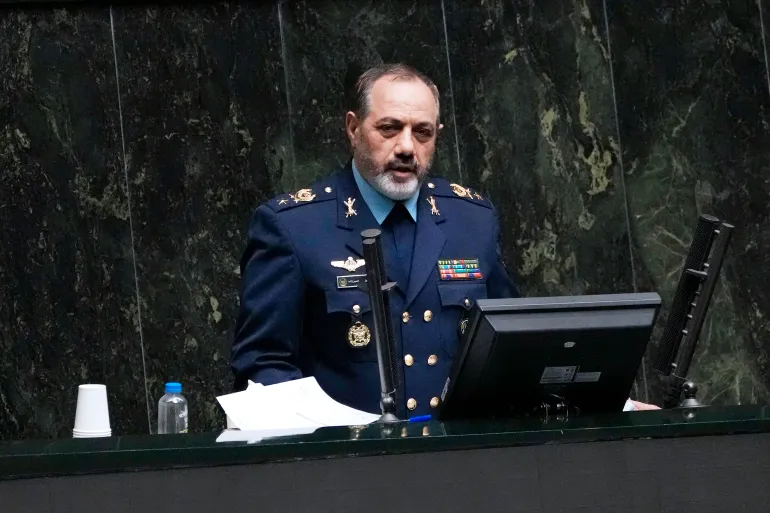
US and Israeli Strikes on Iran’s Nuclear Sites: Did the Damage Live Up to the Claims?
One of the most contentious aspects of the conflict has been the US and Israeli airstrikes on Iran’s nuclear facilities, particularly the Fordow, Natanz, and Isfahan sites. US President Trump repeatedly claimed that these strikes had “obliterated” Iran’s nuclear program. However, intelligence reports reveal a more complicated reality. According to the Director of National Intelligence, Tulsi Gabbard, new intelligence suggests that while the strikes caused significant damage, they did not destroy Iran’s nuclear facilities. Rather, the damage to these underground sites was such that it would take Iran several years to rebuild them if it chose to do so.
This discrepancy between the public statements and intelligence assessments has sparked debate. While President Trump’s rhetoric painted the airstrikes as a decisive blow to Iran’s nuclear ambitions, reports suggest that Iran’s nuclear program remains viable. Iran’s Supreme Leader and other officials have indicated that their pursuit of nuclear energy, under the framework of the Non-Proliferation Treaty (NPT), will continue. Esmaeil Baghaei, the Iranian Foreign Ministry spokesman, has reaffirmed that Iran has every right to pursue nuclear energy for peaceful purposes, and the country will not back down in the face of foreign aggression.
This divergence in perspectives on the effectiveness of the strikes indicates that while the conflict may have paused, the underlying issues—particularly Iran’s nuclear aspirations—remain unresolved. The future of Iran’s nuclear program is expected to be a central topic in any future negotiations between the US, Israel, and Iran.
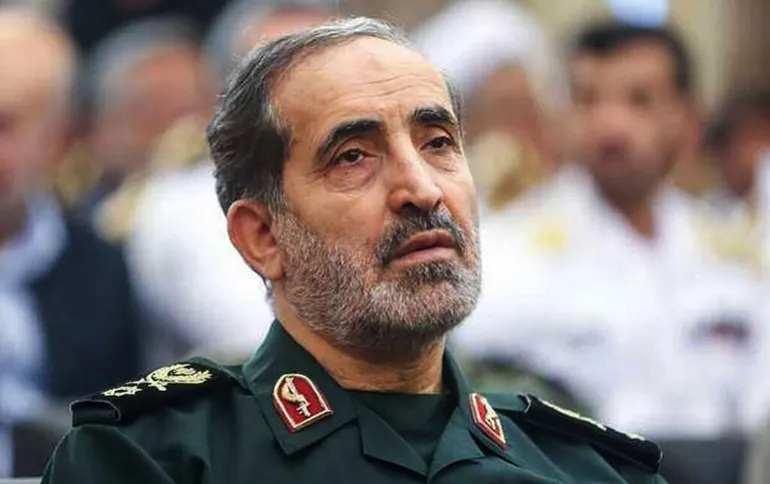
Iran’s Shift: Suspension of IAEA Cooperation and Nuclear Strategy
In the aftermath of the attacks, Iran’s parliament passed a bill that would suspend cooperation with the International Atomic Energy Agency (IAEA), which is responsible for monitoring Iran’s nuclear activities. This bill is seen as a direct response to the airstrikes and reflects growing frustration within Iran over international efforts to curb its nuclear ambitions. While the bill still requires approval from the country’s National Security Council and the Supreme National Security Council, its passage underscores Iran’s determination to continue its nuclear program despite external pressures.
Baghaei pointed out that suspending cooperation with the IAEA was a “natural” response to the “egregious” acts of aggression carried out by the US and Israel. Iran’s decision to pause engagement with the IAEA raises significant concerns about the future of nuclear diplomacy in the region. If Iran follows through with the suspension, it could lead to further isolation from the international community and fuel fears of a nuclear arms race in the Middle East.
Iran has emphasized that its nuclear activities are peaceful and fall within its rights under the NPT. However, the suspension of cooperation with the IAEA and the country’s continued investment in nuclear technology are likely to exacerbate tensions with Israel and the United States, both of which view a nuclear-armed Iran as a threat to regional and global security.
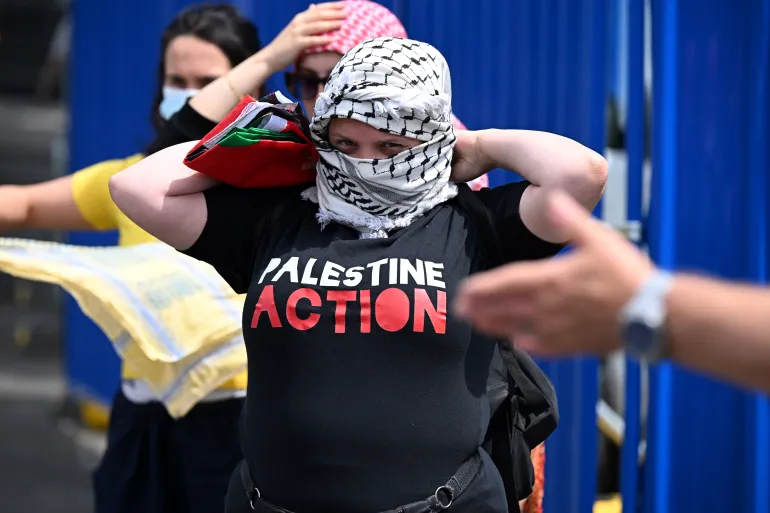
The Humanitarian Crisis: Gaza, Casualties, and International Condemnation
While the military and diplomatic aspects of the conflict have dominated headlines, the humanitarian impact of the war in Gaza has been devastating. According to the Gaza Ministry of Health, the death toll in the Gaza Strip has surpassed 56,000, with thousands more injured or displaced. The ongoing violence, combined with Israel’s blockade of Gaza and its targeting of civilian infrastructure, has led to widespread suffering. Hospitals in Gaza are overwhelmed, with medical staff working under tough conditions to treat the injured.
Dr. Bushra Othman, a volunteer surgeon in Gaza, spoke about the horrific injuries she has witnessed, many resulting from missile strikes aimed at aid distribution centers. These aid hubs have become increasingly dangerous, with civilians often killed or injured while attempting to obtain essential supplies. The lack of proper medical equipment and the constant threat of bombardment have made it nearly impossible to provide adequate care for the wounded.
The UN has condemned Israel’s actions, particularly its strikes on civilians, and placed Israel atop its “children’s rights blacklist” for the second consecutive year. The list highlights the grave violations committed against children in conflict zones, particularly in Gaza and the occupied West Bank. The death of children and the destruction of infrastructure critical for their survival have drawn widespread international condemnation.
The situation in Gaza has prompted calls for a ceasefire that extends beyond just the Iran-Israel conflict. Palestinian President Mahmoud Abbas has publicly commended Trump for the ceasefire between Iran and Israel. Still, he has also urged the US to help broker a lasting peace deal that addresses the humanitarian crisis in Gaza and the broader Palestinian cause.
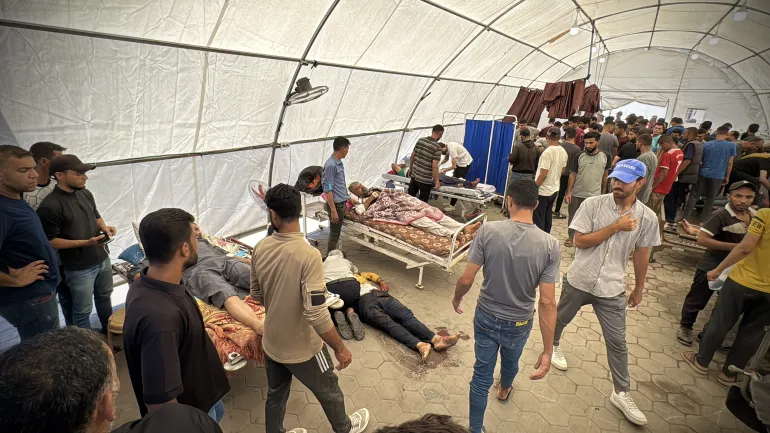
Global Reactions: Diplomacy, Tensions, and the Road Ahead
The international community remains deeply divided over the conflict and its aftermath. While countries like Russia and China have expressed concerns about the escalating violence and the suspension of Iran’s cooperation with the IAEA, others, particularly the US and Israel, have hailed the strikes as a success. The US has positioned itself as a defender of Israel, with President Trump boasting about the effectiveness of the airstrikes while also signaling that the US is not interested in immediate negotiations with Iran unless it demonstrates a serious commitment to diplomacy.
On the other hand, Iran’s Foreign Ministry spokesman, Baghaei, has rejected any notion of US goodwill, accusing the US of “torpedoing diplomacy” by enabling Israeli attacks on Iran’s nuclear facilities. This mistrust between Iran and the US makes future negotiations uncertain, with both sides still locked in a struggle for regional dominance and influence.
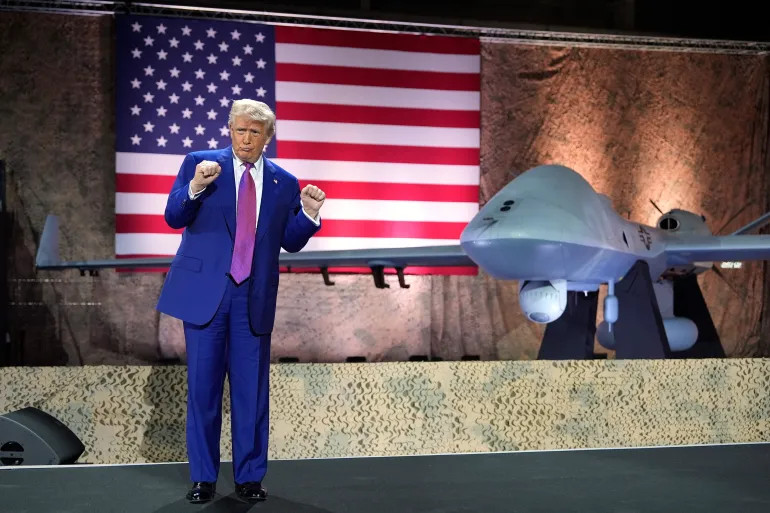
Conclusion: A Fragile Peace and an Uncertain Future
The ceasefire between Israel and Iran marks a temporary respite in a long-standing geopolitical rivalry, but it remains to be seen whether this peace will hold. The conflict has highlighted the deep-rooted tensions in the Middle East, where issues such as nuclear proliferation, regional security, and humanitarian rights continue to be sources of friction.
Iran’s nuclear ambitions, Israel’s security concerns, and the humanitarian crisis in Gaza are all factors that will shape the future of the region. While the ceasefire provides much-needed relief for civilians caught in the crossfire, the underlying issues remain unresolved. As talks between US and Iranian officials begin next week, the world will be watching closely to see whether these negotiations will lead to lasting peace or if further conflict is inevitable.
The Middle East stands at a crossroads, and the decisions made in the coming weeks and months will have far-reaching implications for the stability of the region and the world. As the humanitarian toll continues to rise, it is clear that the pursuit of lasting peace will require a commitment to dialogue, diplomacy, and a recognition of the rights and security of all parties involved.
Author Profile
- Syed Tahir Abbas is a Master's student at Southwest University, Chongqing, specializing in international relations and sustainable development. His research focuses on U.S.-China diplomacy, global geopolitics, and the role of education in shaping international policies. Syed has contributed to academic discussions on political dynamics, economic growth, and sustainable energy, aiming to offer fresh insights into global affairs.
Latest entries
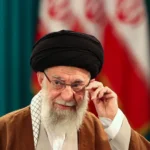 World PoliticsMarch 1, 2026Ayatollah Ali Khamenei: The Martyr Who Shook the World – A Criminal US-Israeli Aggression Against the Islamic Republic
World PoliticsMarch 1, 2026Ayatollah Ali Khamenei: The Martyr Who Shook the World – A Criminal US-Israeli Aggression Against the Islamic Republic World NewsFebruary 28, 2026Escalating Tensions in the Middle East: US and Israel Launch Joint Strikes on Iran Amid Retaliatory Attacks
World NewsFebruary 28, 2026Escalating Tensions in the Middle East: US and Israel Launch Joint Strikes on Iran Amid Retaliatory Attacks International RelationsFebruary 24, 2026Four Years of the War in Ukraine: A Global Perspective
International RelationsFebruary 24, 2026Four Years of the War in Ukraine: A Global Perspective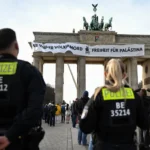 International RelationsFebruary 18, 2026Europe’s Israel Policy Faces a Democratic Test: A Growing Movement for Accountability
International RelationsFebruary 18, 2026Europe’s Israel Policy Faces a Democratic Test: A Growing Movement for Accountability


11 comments
I simply could not go away your web site prior to suggesting that I really enjoyed the standard info a person supply on your guests Is going to be back incessantly to investigate crosscheck new posts
I don’t even know how I ended up right here, but I assumed this publish was once great. I don’t understand who you are but certainly you are going to a famous blogger should you are not already 😉 Cheers!
There are certainly a variety of particulars like that to take into consideration. That is a great level to convey up. I offer the thoughts above as general inspiration but clearly there are questions like the one you deliver up the place crucial factor will be working in honest good faith. I don?t know if greatest practices have emerged around things like that, but I’m positive that your job is clearly identified as a fair game. Each girls and boys feel the impression of only a second’s pleasure, for the rest of their lives.
I dugg some of you post as I cogitated they were very useful very beneficial
I like this site because so much utile material on here : D.
Great wordpress blog here.. It’s hard to find quality writing like yours these days. I really appreciate people like you! take care
An interesting discussion is value comment. I think that you must write extra on this matter, it won’t be a taboo subject but usually persons are not sufficient to talk on such topics. To the next. Cheers
It’s really a nice and helpful piece of information. I am glad that you shared this helpful information with us. Please keep us up to date like this. Thanks for sharing.
Excellent blog here! Also your site loads up fast! What web host are you using? Can I get your affiliate link to your host? I wish my web site loaded up as quickly as yours lol
you are really a good webmaster. The website loading speed is amazing. It seems that you are doing any unique trick. In addition, The contents are masterpiece. you’ve done a magnificent job on this topic!
It’s perfect time to make some plans for the longer term and it is time to be happy. I have read this submit and if I may I want to suggest you some fascinating issues or suggestions. Maybe you can write subsequent articles regarding this article. I want to learn even more things about it!